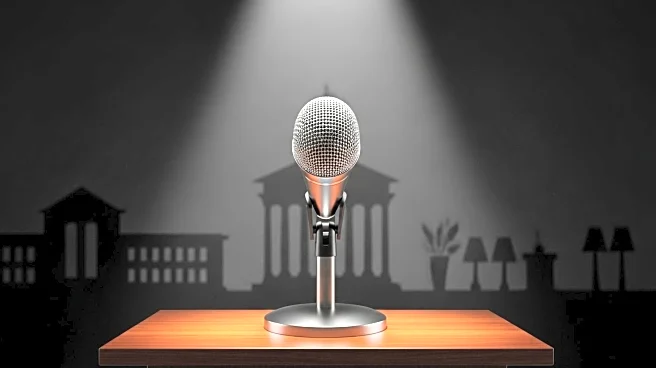What's Happening?
Defense Secretary Pete Hegseth has introduced new policies that significantly restrict the Pentagon press corps, drawing criticism from media organizations and watchdog groups. The policies require reporters to sign a pledge not to use unauthorized material, even if unclassified, effectively turning them into Pentagon PR representatives. This move has been criticized for stifling a free press and isolating reporters from their workspaces, making it harder to interact with Pentagon spokespeople. The Pentagon Press Association has expressed concerns about these restrictions, stating they fail to honor American families and taxpayers. Despite revisions to the policy, media organizations are considering legal action and have not yet decided whether to accept the new rules.
Why It's Important?
The restrictions imposed by Defense Secretary Pete Hegseth have significant implications for press freedom and transparency in reporting on military affairs. By limiting access and controlling the narrative, the Pentagon risks undermining the public's right to know about military operations and decisions. This could lead to a less informed public and reduced accountability for the Department of Defense. Media organizations and journalists stand to lose access to critical information, impacting their ability to report accurately and comprehensively. The broader impact on U.S. society includes potential erosion of trust in government institutions and increased tension between the press and the administration.
What's Next?
Media organizations are reviewing the revised policy and considering their options, including potential legal challenges. The Pentagon has given reporters one week to review and sign the updated draft, raising the possibility of losing access to the Pentagon complex. News outlets are weighing the implications of signing the pledge against their ability to report freely. The situation may lead to further isolation of reporters and reduced interaction with Pentagon officials, affecting the quality and depth of military reporting. The outcome of this policy change could set a precedent for future interactions between the press and government institutions.
Beyond the Headlines
The ethical implications of these restrictions are profound, as they challenge the principles of a free press and the role of journalists in holding government accountable. The move may also reflect broader trends in government attempts to control media narratives and limit dissent. Long-term, this could contribute to a culture of secrecy and reduced transparency in government operations, affecting public trust and democratic processes.








